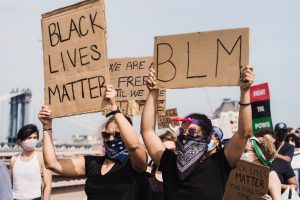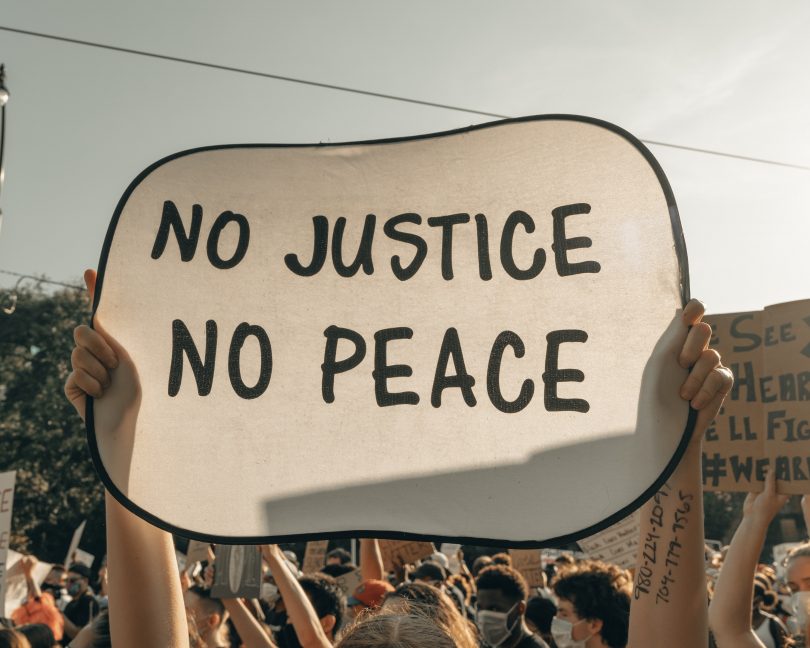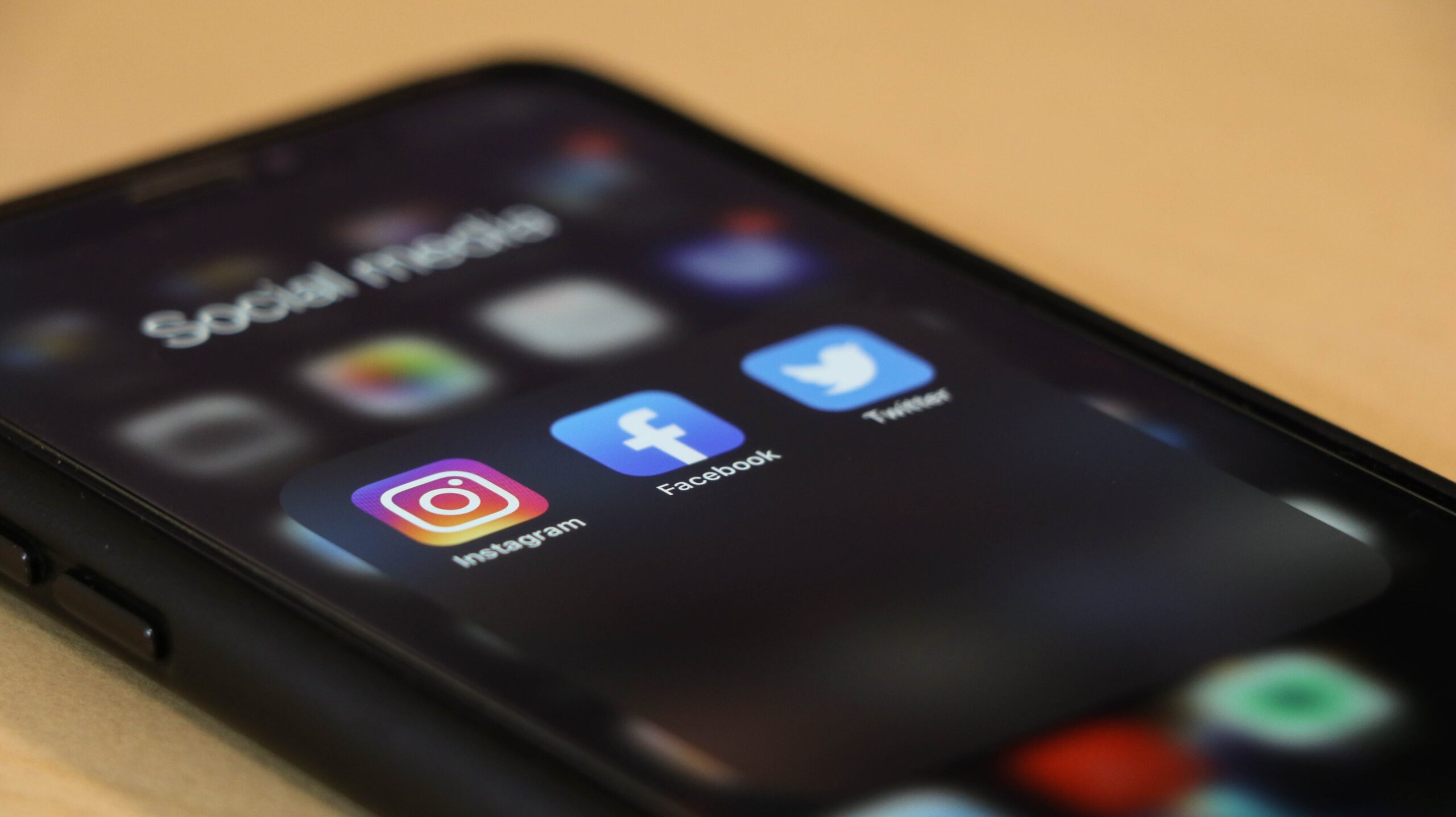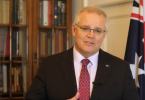A year ago, the movement Black Lives Matter received global coverage and prompted the world to talk about the racism and violence that flourishes around the world.
This year, there’s been a surge of violence against Asians particularly in the United States and some journalists also takes the frontline in speaking up about these racism against Asians especially in times of the pandemic.

Photo by Life Matters from Pexels
Covering stories like BLM was dangerous for many people, including journalists like Linda Tirado who ended up partially blind after she was shot with a foam bullet.
It’s not just physical injuries that journalists face, they have also been wrongfully arrested as well.
Even then, journalists continue to cover these stories because they are stories that needs to be told.
Using your platform
According to ReliefWeb, the media has an important role in putting a stop to rights being violated.
UK journalist and academic Charlie Beckett says journalists are important for social change.
“Journalists also have a vital role in directly countering rumour, hatred and divisive messaging online,” Beckett says.
As a journalist, it is ideal to use the platforms we have, so the public will listen to these stories.
Journalists like us, play a pivotal role in telling stories of the oppressed, and those who become allies and accomplices of the oppressed.
But how do we report on these such social issues?
Amplifying voices
Rather than speaking over the minority, it is our responsibility as a journalist to amplify minority voices, to listen, and to do the research to understand the issues.
In Sri Lanka, like other parts of the world, it is seen that there is a moral obligation to give a fair reporting and speaking up for the voiceless and empowering them.
Coverage of the #BLM movement last year showed there are still journalists who believe in these matters and principles.
Many a said they want the attention to be on the communities they cover instead, not on their own their safety during BLM protests.
These journalists are great examples for speaking up about issues like these, but there is always the other side of the spectrum.
What is wrong?
As much as journalists try to openly discuss issues of racism, a lot of it stops at BLM.
During the pandemic, people of Asian descent, even celebrities, experienced racist comments and violent attacks.

Photo by ShotPot from Pexels
German radio host for Bayern 3 Matthias Matuschik made racially charged comments on air about his dismay of Korean boy band BTS covering Coldplay’s Fix You and compared them to COVID-19.
“These p—–s bragged about covering Fix You from Coldplay,” Matuschik said. “
This is sacrilege! They should be sent to North Korea for the next 20 years! … You can’t accuse me of xenophobia just because of this boy band. I have a car from South Korea.”
The radio host actually owned a Japanese car.
Korean journalist Jae-Ha Kim, who has had her fair share of being on the receiving end of racist comments, called out people like Matuschik for viewing Asia as monolith rather than a diverse grouping of more than 50 countries.
This is only one of the many micro/aggressions Asians experience in other countries.
Microaggressions can include saying it is your own opinion, but one must understand that racism is not an opinion and is not justifiable.
Racism is not an opinion
Racism is not something that can be eliminated with a simple swish of a magic wand. It is something that everyone needs to unlearn.
As journalists, we can use our voice to speak for the voiceless but before doing that, we must first understand situations that the minorities are facing.
Taking that first step of educating ourselves, and the people around us, about these social issues.
When we have finally understood why these issues matter, then it will be the time for us to find a way to empower the people behind these stories and open more avenues for discussion in order for the minorities voices to be heard.
Featured image: Photo by Clay Banks on Unsplash








Great article Faith. I agree that journalists have a responsibility to speak up for marginalised people and endeavour to enact social change.
However, the Australian media often fails to uphold this responsibility when reporting on non-white communities and their issues. The reporting on last year’s Black Lives Matter protests was an example of this when concerns about high Indigenous incarceration rates were simply reduced to stories about Chris Lilley.
It can be seen that Australia’s almost exclusively white media has trouble acknowledging that their whiteness does not make them objective on such topics or immune from bias. More education needs to be carried out in newsrooms to improve attitudes and reporting on these topics.
“The radio host actually owned a Japanese car.” – I absolutely died of secondhand cringe. What an effective way to show – not tell – what a piece of work this guy is.
Thank you for a thoughtful piece on the twin necessities of 1) speaking up for people affected by racism and 2) not speaking *over* people affected by racism. You did a great job pointing out the variety of different forms racist commentary can take.
Hopefully this piece will motivate those just starting out in media to self-educate and commit to a growth mindset of “failing better” over time.
Love this article, Faith. Really juicy content on a topic that is often very greasy to wrestle with.
I applaud your power language – it is easy to sidestep the topic and highlight examples and take no real opinion for sake of saving face, but I absolutely agree that now is the time (well, forever is the time, but we’re living in the now) to call racism out for what it is.
The overtly racist vitriol that came from the pandemic is yet another permanent bruise on the visage of today’s society (in some countries more than others, yes, but #notallcountries won’t cut it), and I would implore all budding journalists (and all people, in fact) to look at this article and the many like it that highlight what is going wrong, how it impacts people (PEOPLE!!) and what to do about it.
The concept of unlearning is a fresh buzzword that I think is seeping into our vernacular, and I really hope that all major educative sources (e.g. the media, schools, academia, entertainment) start/continue showing society’s cracks and how to mend them via ‘unlearning’.
Great article Faith!
I was pretty shocked to read about Linda Tirando being physically assaulted for her coverage of BLM.
Where journalists are being arrested for their reporting and activism- should we even call it activism?!- we have to wonder just how ‘free’ our media is…
I really commend your engagement with this topic. You have crafted a pathway for being the conduit
of someone else’s story, which is a delicate thing to do but essential if we are to humble ourselves towards listening to, and amplifying marginalized voices, rather than talking over them with our self-determined habits and assumptions.
Thanks for this article Faith. I heard a lot of stories last year about journalists who were hurt and racially harassed while covering the Black Lives Matter protests and the COVID-19 pandemic. It was devastating to read about Linda Tirado who is now permanently blind in one eye. She was just doing her job and now she has to live with this injury forever.
It was good to see ABC journalist Elias Clure report on Black Lives Matter last year and utilise his lived experience with racism. A lot of people thanked him for his reporting, and this brought a different perspective to the ABC coverage. Australian TV anchor Peter Overton said that white journalists can do a great job but sometimes they can’t bring a comprehensive understanding on matters like this.
The media has a strong social and cultural impact on society and journalists must understand the situations minorities are facing before reporting on these social issues.
Good one, Faith! I love what you pointed out about journalists having a moral obligation to speak up for the voiceless: if we don’t, who will? And to what you mentioned about a lot of people stopping at BLM reminds me of how Singporeans often speak up in support for the movement yet continue to perpetuate racism, racial ignorance or racist stereotypes against minorities in our own homeland.
Top work Faith! Very powerful last few paragraphs!
This piece has aged well throughout the semester too. First, it was the “China virus” and the call for an investigation into the Wuhan wet market. Possibly exacerbating the diplomatic tensions that existed between Australia and China pre-pandemic. We saw spray paint on someone’s home, heard of harassment on trams, and the rest of it. So disappointing.
Now, we’ve seen travel bans to and from India (unless exempt). The Indian government has tried to remove the phrase ‘Indian Variant’ from social media. (Disclosure: I read this Time magazine article before I hosted Panorama today – whoops) They claim it will be a catalyst for racism and is not 100 per cent scientifically accurate. I think I have to agree with them. Given the state of India and the devastating loss of life they are seeing, the perhaps unnecessary term ‘Indian variant’ could have a terrible impact socially in many countries. Apparently in Singapore there have been racist incidents against ex-pat Indians.
I think the Beckett point is a good one. Not enough of the media care about preventing division in society. Think about how many times you heard the phrase: “the drums of war are beating.”
I know this was comment was made by a government employee but it still carried wide and far in the media. I’m sure it would have led to racism, directly or indirectly, in parts of Australian society.